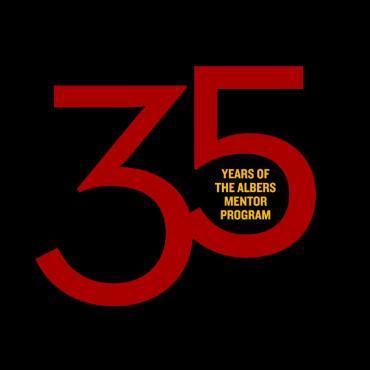Willie Aikens Filled in the Gaps of Students' Mosaics
Former Boeing executive Willie Aikens says his 30 years in the Albers Mentor Program consisted of intense listening, acting as a sounding board and helping formulate solutions to students' challenges.
/260x0:1741x945/prod01/channel_34/media/seattle-university/albers-school-of-business/news-and-events/albers-news/albers-brief/images/ab-summer-2024/Willie-Header.jpeg)
Willie Aikens, Former Boeing Executive, '74 MBA
On What Got Him Into the Albers Mentor Program
The arc of mentoring at Albers was modeled after Southern Methodist University’s Mentor Program for the past 30 years and had two book ends. Number one was the imagination and vision of former President William J. Sullivan S.J. and Dean of Albers Jerry Viscione and two was the tenacious and rigorous implementation regime of former President Stephen V. Sundborg, S.J and current Dean Joseph M. Phillips. I have had the privilege and honor to serve for 30 years with hundreds of excellent mentors, untold numbers of students and leaders of the Albers Career Center, former director Mary Lou Moffat and current head Megan Spaulding.
His Experience as a Mentor
A rigorous analysis of the past 30 years in the program reveals that I have a passion for people and I care. I had a total of 130 mentees during my time as a mentor and it was a magnificent experience.
The relationships I have developed with other mentors, Albers Mentor Program leaders, and The Boeing Company supporting cast have been invaluable. I owe a debt of gratitude to Paul Pasquier, former Vice President Boeing and focal to Seattle University, and his Executive Assistant Shawna Quinn who have made my journey successful and worthwhile. A special tribute to my original group of Boeing Executive Assistants who gave my program a heartbeat and sustainability: Bonnie Isaacson, Virginia Anderson, Jan Decker, Dawn Haight, Darlene Ducey. I HAD FUN!!!
 What Students Are Looking For in Mentorship
What Students Are Looking For in Mentorship
I expect mentees to come to my program with an attitude that they can do whatever they want as long as they dream big and dream again!
The four pillars of my program for graduate students are:
- Communications—oral and written.
- Relationships—within companies and without.
- Networking—with students being the center of the network and reaching out to current job
associates, friends, church, outside organizations, professionals, neighbors, previous job associates, and relatives. This effort reinforces the Jesuit Catholic mission of educating the whole person. - Exposure—to the private and public sectors.
We concentrate on the soft skills:
- Attitude/moral
- Communications skills
- Teamwork
- Leadership/influence
- Adaptability and
- Willingness to learn and change
In Willie's Words
Willie Aikens
I expect mentees to come to my program with an attitude that they can do whatever they want as long as they dream big.
Former Boeing executive and '74 MBA
'It Takes a Village'
The program is designed on a nine-month basis with the mentees participating by providing their resume and a one-pager with answers to the following questions:
- What are your goals?
- What is your track record in completing projects?
- What do you need to improve?
- What are you doing to improve?
During the year we explore topics and subjects to meet the mentees’ objectives from their one-pagers. It takes a village including me, other executives and technical resources, public and private sector personnel, wealth management consultants, Seattle University Board Trustees, and Albers Advisory Board Members.
The students have the potential for success, but my job has been to fill in the gaps in their mosaics. My guidance consists of intense listening, acting as a sounding board and helping to formulate solutions to the challenges they face. My main mentoring reference sources have been Peter Drucker’s Management and Alan Mulally’s American Icon publications which provided excellent problem-solving advice.
Grad students have an additional dimension because most of them have careers or are on hiatus for the MBA program. Work life balance must be addressed and solved if the students are going to be successful.
Our international students are driven to go back to their home countries and “pay it forward” by setting up companies, helping non-profit organizations, and in general making their countries better than they were before attending Seattle University.
Advice He'd Give Anyone Considering Being a Mentor
The Mentor Program is well organized and provides opportunities for mentors to share best practices throughout the year. We learn from each other. The highlight of my 30 years is to witness some of my mentees return to Albers as mentors.